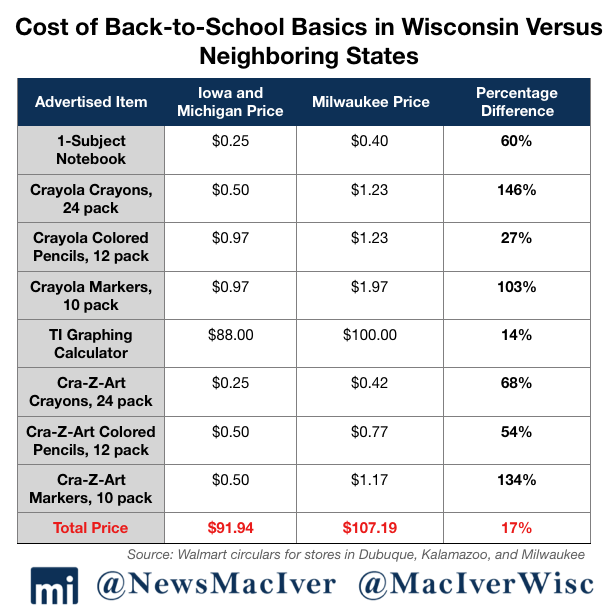The sales tax holiday was nice, but Wisconsin Republicans could have helped consumers so much more by repealing the Minimum Markup laws and letting the invisible hand work. Their failure is not inexplicable, but very disappointing. MacIver runs some numbers.
Like in past years, families in Milwaukee buying basic items like notebooks, markers, and crayons can expect to pay anywhere from 14 to 146 percent more than Walmart shoppers in Dubuque, Iowa, and Kalamazoo, Mich.
A 24-pack of Crayola Crayons posted the largest price difference, costing 146 percent more in Milwaukee than in cities in the neighboring states. The same was true for similar basic school supplies.
Parents picking up a one-subject notebook at Walmart in Dubuque, for example, only paid 25 cents. That same notebook cost 40 cents in Milwaukee – a 60 percent gap. Crayola markers cost 97 cents in Kalamazoo, but thanks to the archaic minimum markup law, those same markers cost $1.97 in Milwaukee, a whopping 103 percent difference.
A Texas Instruments graphing calculator cost $100 in Milwaukee, but just $88 in both Iowa and Michigan.
The added costs stack up. A basic shopping list would cost 17 percent more for a Milwaukee back-to-school shopper than in nearby states – 85 percent more not including the calculator.

